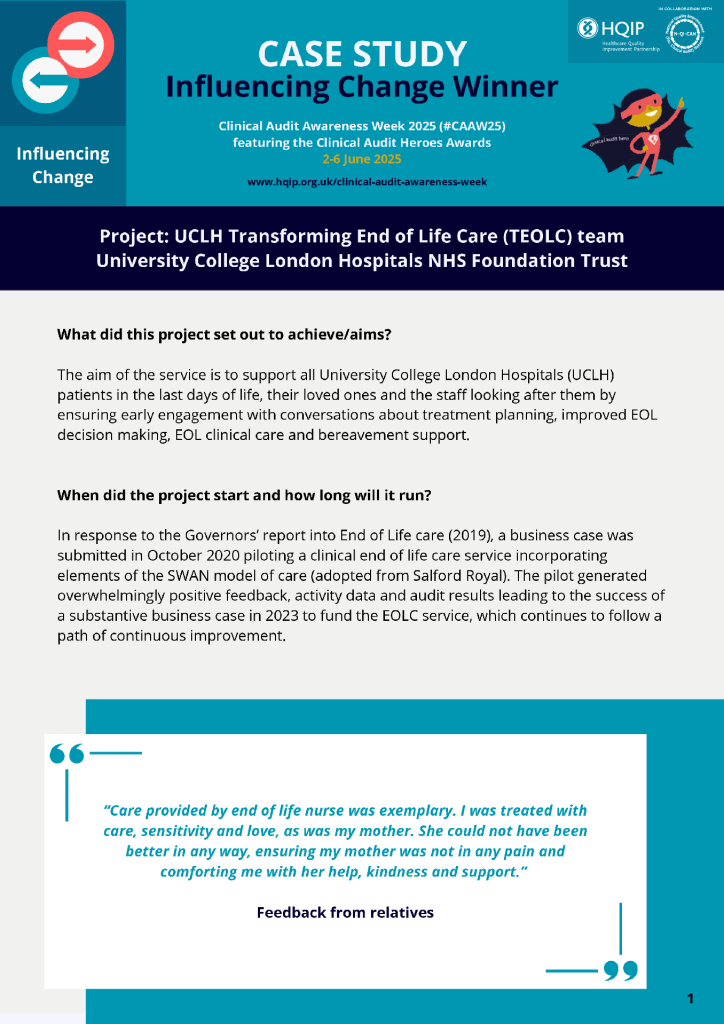Case study: Using audit to improve end of life care
This case study by the 2025 Clinical Audit Hero Award Influencing Change winner, the Palliative Care Team at University College London Hospitals NHS Foundation Trust (UCLH), showcases how their project used audit data to improve end of life treatment planning, decision making and care, and bereavement support.
The case study highlights how audit-driven change can influence service delivery, and demonstrates the impact of collaborative working to improve access, experience and outcomes for patients requiring palliative care. Key achievements of the project include:
- Innovative use of virtual reality (VR) to reduce reduce isolation, anxiety, and distress in palliative patients
- Survey data from bereaved carers that demonstrated superior overall quality of end of life care
- UCLH as one of 13/204 trusts awarded a commendation of excellence from the National Audit of Care at the End of Life (NACEL).
How to access: Download the case study below.
This case study was developed as part of Clinical Audit Awareness Week 2025 (which took place 2–6 June 2025, #CAAW25). You can explore other available #CAAW25 videos, podcasts and resources by heading over to the #CAAW25 main webpage. You can also share your feedback about this CAAW25 resource by completing this form.


